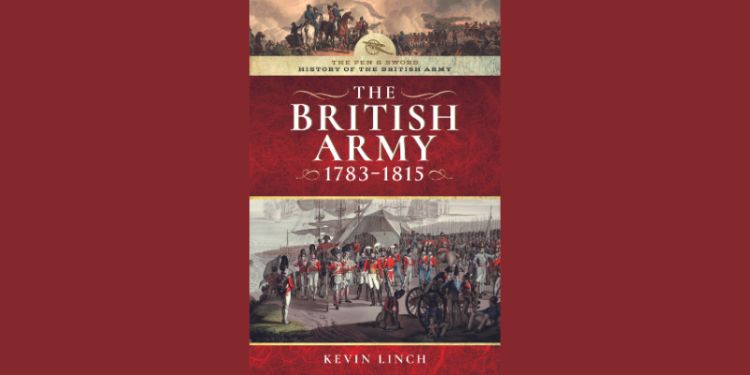The British Army 1783-1815: Professor Kevin Linch on his new book

The book has been published by Pen and Sword as part of their History of the British Army series. Professor Linch joins us to tell us more about the book.
Why did you want to write this book?
I was honoured to be approached to write this book as part of a new series charting the history of the British Army from the 17th century to the present day, with individual volumes on different eras.
I've been working on the topic for over twenty years, so this was a great opportunity to take stock of all the recent historical work on the history of the Army, both my research and others.
In this book I also wanted to update perspectives about Britain's soldiers and Britain's Army between 1783 and 1815. For example, to go beyond the Duke of Wellington and the Battle of Waterloo, important though they are!
What surprised you in the course of writing this book?
As a broad history of an institution, I did not want to lose the personal stories of those involved in this book.
I found that through the existing records (and there are a lot) I developed quite a connection to the people I chose to look into, even though we are separated by over 200 years.
Another revelation was much more practical: the value of archives. I started the book before the COVID-19 pandemic and the closure and then gradual re-opening of archives really made me appreciate the importance of archives and the great work that archivists do keeping documents safe for the future but also available for users.
What unexpected results did you uncover in the course of your research that you think we should know more about and why?
Although called the British Army, the army was not just British. It was a multi-national, multi-ethnic and global military force.
It included people from Britain and Ireland, France, Germany, Italy, Malta, Greece, west and south Africa, the Caribbean and Canada.
The Army pretty much recruited wherever it went in the world and its forces stretched from North and South America, western and southern Europe; north, west and south Africa; across South Asia from Sri Lanka to Nepal; and into the islands of South-East Asia and to Australia.
The scale of the British Army's multi-nationalism has not really been appreciated before, particularly as it was the European component that has had most of the attention.
What is the key thing that you want readers to remember from this book?
To have a wider perspective about military history in the period, indeed any period. It is not just about battles, generals and weapons, but about the people involved and their actions, experiences and views. And to appreciate the close relationship between the military, society, politics and culture that shape armed forces.
Find out more
Hear Professor Linch talk about his research relating to the book on the Napoleonic Wars Podcast.
The British Army 1783-1815 is published by Pen and Sword Press, 2024. It was awarded the Templer Medal for the best book on British Military History published in 2024 by the Society for Army Historical Research.
Read more about Professor Linch’s research on his staff page.



